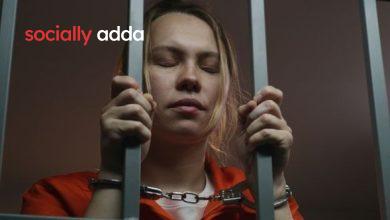10 People Who Secretly Controlled Countries Without a Title

In history, official titles rarely tell the whole story. While presidents, kings, and emperors stood in the spotlight, true decisions were often made in the shadows. Some individuals, without any formal authority, exercised immense control over governments, armies, and national agendas. These shadow rulers influenced wars, reforms, and revolutions—all while remaining officially “invisible.”
Let’s uncover 10 remarkable people who ruled without ruling.
1. Edith Wilson – America’s Hidden President
Role: First Lady of the United States (1915–1921)
After President Woodrow Wilson’s 1919 stroke, Edith Wilson quietly assumed control. She filtered documents, directed cabinet access, and managed decisions—claiming to assist, but essentially running the executive branch for over a year.
2. Grigori Rasputin – The Monk Who Shook the Empire
Role: Spiritual advisor to the Russian royal family
Rasputin’s grip over Tsarina Alexandra, and indirectly over Tsar Nicholas II, helped destabilize imperial Russia. His political interference during WWI fueled public outrage and contributed to the monarchy’s fall.
3. Cardinal Richelieu – France’s Puppet Master
Role: Chief Minister of France (1624–1642)
Though not king, Richelieu shaped France’s destiny by centralizing power, suppressing the nobility, and driving foreign policy. His rule redefined France as a European superpower.
4. Madame de Pompadour – The Woman Behind the Throne
Role: Royal mistress and advisor to King Louis XV
Far beyond her romantic role, Pompadour influenced military decisions, diplomatic appointments, and Enlightenment policy. Ministers courted her favor to reach the king.
5. Imelda Marcos – More Than the First Lady
Role: Wife of Philippine President Ferdinand Marcos
Imelda held multiple posts, but her true strength lay in informal power—overseeing diplomacy, infrastructure, and political cronyism during a notoriously corrupt regime.
6. Deng Xiaoping – China’s Silent Reformer
Role: Paramount Leader (1978–1992, unofficial)
Though never president, Deng controlled China’s modernization, economic policy, and global emergence. His authority reshaped the nation’s trajectory.
7. Mamie Eisenhower – The General’s Quiet Strategist
Role: First Lady of the United States (1953–1961)
Mamie didn’t craft laws, but controlled Eisenhower’s access, health, and environment—effectively safeguarding presidential leadership through personal management.
8. Anne Boleyn – England’s Accidental Architect
Role: Queen Consort of England (1533–1536)
Anne’s ambition sparked the English Reformation. Though executed young, her influence over Henry VIII forever changed Britain’s religious and political structure.
9. Empress Dowager Cixi – Power Behind the Screen
Role: Empress Dowager of China (1861–1908)
Cixi ruled as regent through two emperors. She manipulated court politics, modernized parts of China, and fiercely protected her power until death.
10. Karl Rove – The Strategist in the Shadows
Role: Senior Advisor to President George W. Bush
As “Bush’s Brain,” Rove shaped domestic policy, election strategy, and communications—wielding more power than many cabinet members without holding a top post.





